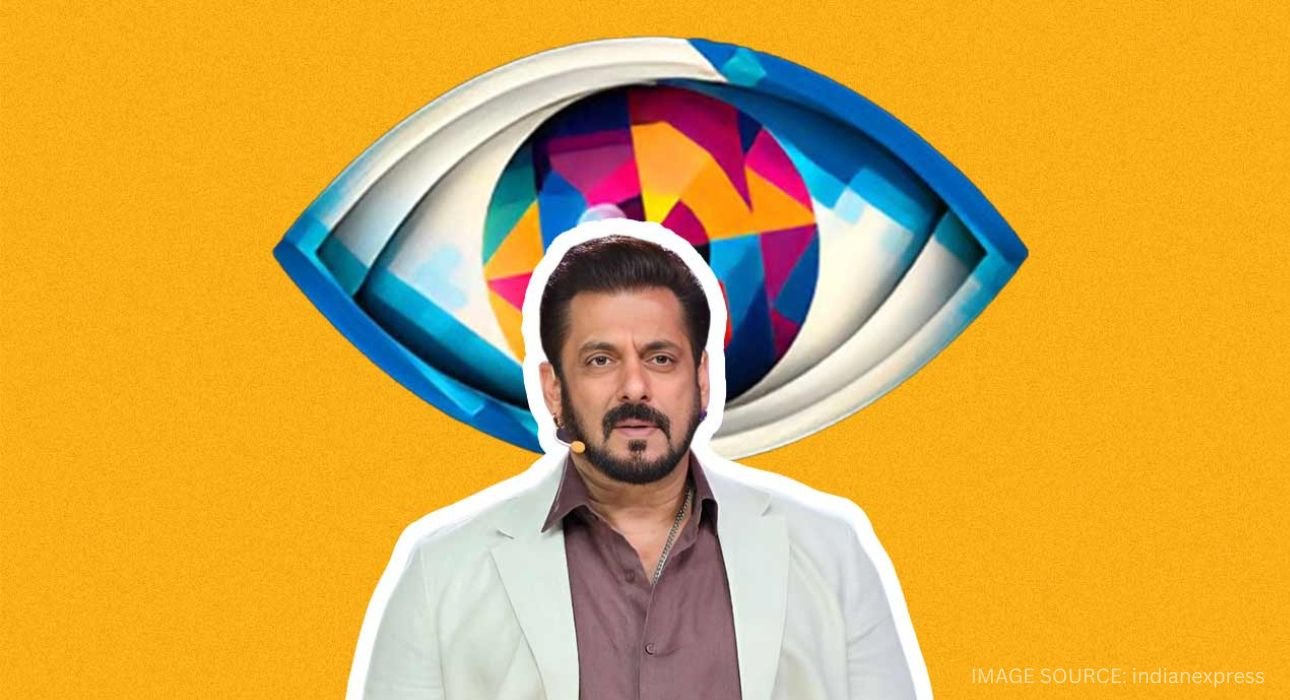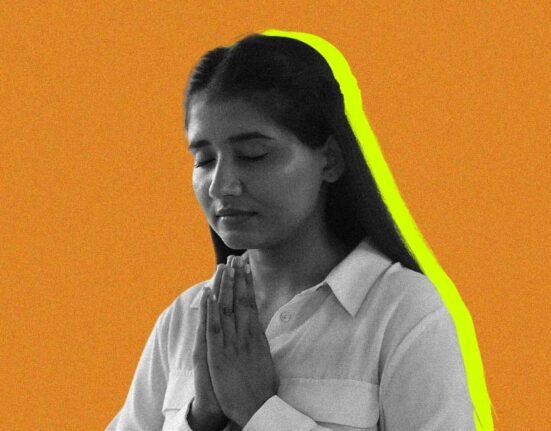Bigg Boss is not simply a reality television performance; rather, it is a high-stress psychological experiment. By placing contestants in a small, monitored space without clocks or any connection to the outside world, each contestant becomes a victim of extreme mental stress, possibly resulting in added stress, anxiety, possible depression, and emotional breakdowns. There is a constant need to win challenges, to form alliances, and to instigate drama to survive the show. There are also additional extreme emotions that manifest during similar conditions that could provoke anger and paranoia, paired with the lack of privacy and helpful systems, that will likely hinder any further psychological stability.
In the end, the unique nature of the isolated setting pushes all contestants’ challenges and abilities to unending mental limits, while viewers also become impacted, where they could eventually view aggressive behavior patterns of the toxic, problematic behavior as being more normalized behavior, in the end, it offers a unique, albeit unfortunate, platform to study human behavior in extreme conditions. This is further explored in the article below.
Read More: Why Do People Love Watching Bigg Boss?: Perspectives of a Psychologist
Bigg Boss as a Social Experiment
Bigg Boss is an interesting social experiment where people are disengaged from their social milieu and systematically confined and isolated from social interaction in a constant and controlled setting (Suedfeld, 2010). The absence of social clocks creates an opportunity to observe the human condition, as layered emotionally as it is framed with elaborate social masking.
The omnipresence of surveillance deepens stress and anxiety; diminished opportunities for personal privacy and control create increased irritability, mood swings and emotional breakdowns, consistent with containment research (Haney, Banks, & Zimbardo, 1973). Survival can take many forms, but mostly involves creating social relationships, nomination, and the appeal to the audience, all of which create an intensely competitive experience that reveals the core of group behaviour, including in-group/out-group dynamics, power hierarchies, betrayal, etc. (Tajfel & Turner, 1986).
Contestants must follow a complex social rubric wherein gossip is an essential vehicle for establishing relationship management, reputation management and influence (Dunbar, 2004). What is true within the confines of the household in any social structure, equally true is that the isolated, sustained and competitive context in which this takes place can provide a fascinating experiment to understand the extent to which human behaviour is shaped by the social dimensions of competition and need for human connection and status (Baumeister & Leary, 1995).
Read More: The Psychological Effects of Living in a Surveillance Society
Power, Conflict, and Group Dynamics
Bigg Boss generates a pressure cooker for power, conflict, and group dynamics. The artificial, confined, and isolated environment brings a sense of intensity to a level of competition, with the house serving as a microcosm of socially constructed power relations (Foucault, 1995). Participants have formed alliances and collaborations to better ensure their own safety, but these collaborations are frail, and relationships are ended abruptly by betrayal to save oneself or vote out another. Emergent leadership roles arise through charisma, performance, and then through power titles—titles such as Time God, which is an individual who is granted immunity and power to vote others to be nominated, which changes the landscape of the house.
Even though power is in flux as these titles change, it also causes conflict, as alliances and challengers to authority become fights in public, as each individual wrestles with their emotions, ego, and desire to control the conversation as to what will happen next. The ongoing negotiation of power is shaped by groups’ influence on individuals, personal bias to each person, explains the integration of social hierarchies and the real competition on social dynamics to negotiate the emotional response to cooperate versus acting in self-interest under the ultimate pressure cooker (Sherif, 1966).
The Audience’s Fascination
Psychological and Emotional Motivators
People are highly attracted to Bigg Boss as it meets essential psychological needs. The programme meets a desire for excitement and entertainment with genuine feelings—love, betrayal, conflict—that replicate real social interaction (Reiss & Wiltz, 2004). This provides emotional engagement wherein viewers can become invested as they experience vicarious emotions for the contestants and feel the ups and downs as their own (Nabi et al., 2003).
Social Connection and Community
Bigg Boss creates a collective cultural experience that people commonly discuss. Discussing with friends and family and sharing commentary on social media builds connection and community, taking the experience from being a viewer to a community participant (Couldry, 2008).
Cognitive and Relational Processes
Audiences engage in social comparison by evaluating their lives alongside contestants’ and imagining how they would have acted in similar situations (Festinger, 1954). Further down the relationship lane, an apparent parasocial relationship arises, in which audiences develop a real emotional connection with contestants—a strong one-sided relationship—which impacts audiences’ incidental thoughts and orientations toward contestants and the show as a whole (Horton & Wohl, 1956).
Power, Voyeurism, and Moral Framing
The voting mechanism provides audiences with a false sense of power, making them feel like more active agents in the storyline (Andrejevic, 2004). In a culture-specific example, no less than a show like Bigg Boss Malayalam, voyeuristic pleasure is situated within a moral framework: while allowing audiences to enjoy watching taboo breaking behavior, host Mohanlal’s interventions ensure audiences continue to feel socially responsible by upholding the integrity of public morals and values, allowing for a twofold pleasurable experience: the voyeuristic spectacle versus their moral judgement (Kavoori, 2011).
Conclusion
Bigg Boss is more than an exercise in entertainment. It is also an under-researched window into human behaviour under duress. It incorporates features of social confinement, surveillance, and competition. Power, control, and emotional bonding are primary social vulnerabilities needing resolution. The audience’s fascination with the psychological dilemmas played out is testimony to the social drama of interconnectedness and the moral evaluation of human acts. The blend of voyeurism with emotional participation and control over resource allocation is a hallmark of the reality show. It is the composite social order of Bigg Boss with its psychological warnings and order of spectacle that finds the social space of a society like India. Bigg Boss issues a disclaimer, and it offers a reality check.
FAQs
1. Do contestants’ mental health issues arise from their time on Bigg Boss?
A: Yes, being confined, under watch, and isolated socially for an extended period can create stress, anxiety, depression, and emotional breakdowns. Experts say that the lack of privacy and didactic support escalates negative emotions.
2. Why do fights progress from something minor?
A: Isolation and stress enhance the minor disagreement. Compounding that are pent-up emotions, survival competition, and seeking attention that turn minor frustrations into a full-fledged fight.
3. Are the arguments and drama staged?
A: While some may be strategic accounting of the psychology of the environment, many reactions are real and exacerbated or caused by real frustration or emotional exhaustion.
4. What is the psychological effect of Bigg Boss on viewers?
A: Viewers might experience emotional contagion or adopt aggressive behaviours or language. The show can normalise conflict for kids, who mimic behaviours they observe on the show.
5. Why are viewers so engaged in the program?
A: The unique combination of voyeurism, emotional engagement, and participatory voting leads to a “not-natural” experience. The audience is forming a parasocial relationship with the contestants, realising it’s a moral drama, particularly when episodes include enough thoughtful host interventions.
References +
Andrejevic, M. (2004). Reality TV: The work of being watched. Rowman & Littlefield.
Baumeister, R. F., & Leary, M. R. (1995). The need to belong: Desire for interpersonal attachments as a fundamental human motivation. Psychological Bulletin, 117(3), 497–529. https://doi.org/10.1037/0033-2909.117.3.497
Couldry, N. (2008). Reality TV, or the secret theatre of neoliberalism. The Review of Education, Pedagogy, and Cultural Studies, 30(1), 3–13. https://doi.org/10.1080/10714410701821255
Dunbar, R. (2004). Gossip in evolutionary perspective. Review of General Psychology, 8(2), 100–110. https://doi.org/10.1037/1089-2680.8.2.100
Festinger, L. (1954). A theory of social comparison processes. Human Relations, 7(2), 117–140. https://doi.org/10.1177/001872675400700202
Foucault, M. (1995). Discipline and punish: The birth of the prison (A. Sheridan, Trans.). Vintage Books. (Original work published 1975)
Haney, C., Banks, C., & Zimbardo, P. (1973). Interpersonal dynamics in a simulated prison. International Journal of Criminology and Penology, 1, 69–97.
Horton, D., & Wohl, R. R. (1956). Mass communication and para-social interaction: Observations on intimacy at a distance. Psychiatry, 19(3), 215–229. https://doi.org/10.1080/00332747.1956.11023049
Kavoori, A. (2011). Reality TV. Polity Press.
Nabi, R. L., Biely, E. N., Morgan, S. J., & Stitt, C. R. (2003). Reality-based television programming and the psychology of its appeal. Media Psychology, 5(4), 303–330. https://doi.org/10.1207/S1532785XMEP0504_01
Reiss, S., & Wiltz, J. (2004). Why do people watch reality TV? Media Psychology, 6(4), 363–378. https://doi.org/10.1207/s1532785xmep0604_3
Sherif, M. (1966). Group conflict and cooperation: Their social psychology. Routledge & Kegan Paul.
Slater, D. (2014). Social theory after the internet: Media, technology and globalisation. Routledge.
Suedfeld, P. (2010). Isolation, confinement, and extreme environments: Human adaptation and performance. In G. Fink (Ed.), Stress of war, conflict and disaster (pp. 861–870). Elsevier. https://doi.org/10.1016/B978-0-12-375177-1.10054-7
Tajfel, H., & Turner, J. C. (1986). The social identity theory of intergroup behaviour. In S. Worchel & W. Austin (Eds.), Psychology of intergroup relations (pp. 7–24). Nelson-Hall.













Leave feedback about this